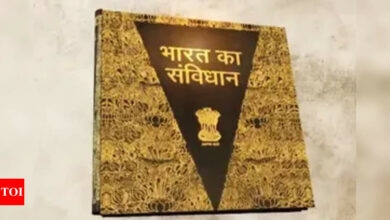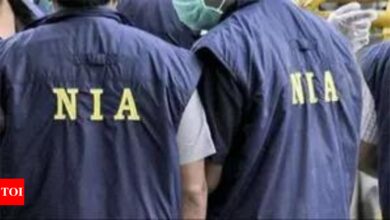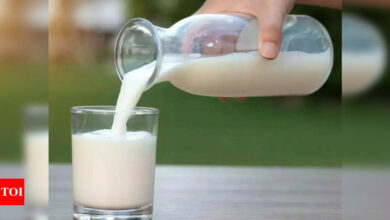India
Mumbai’s famous ‘dabbawalas’ make it into Kerala’s high school curriculum – Times of India
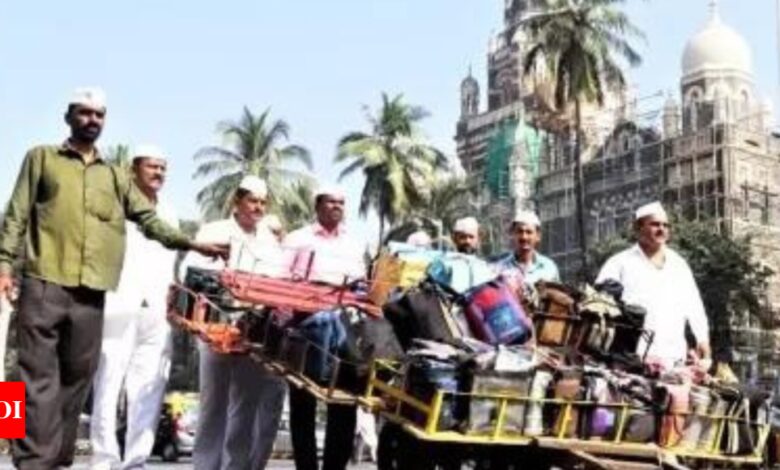
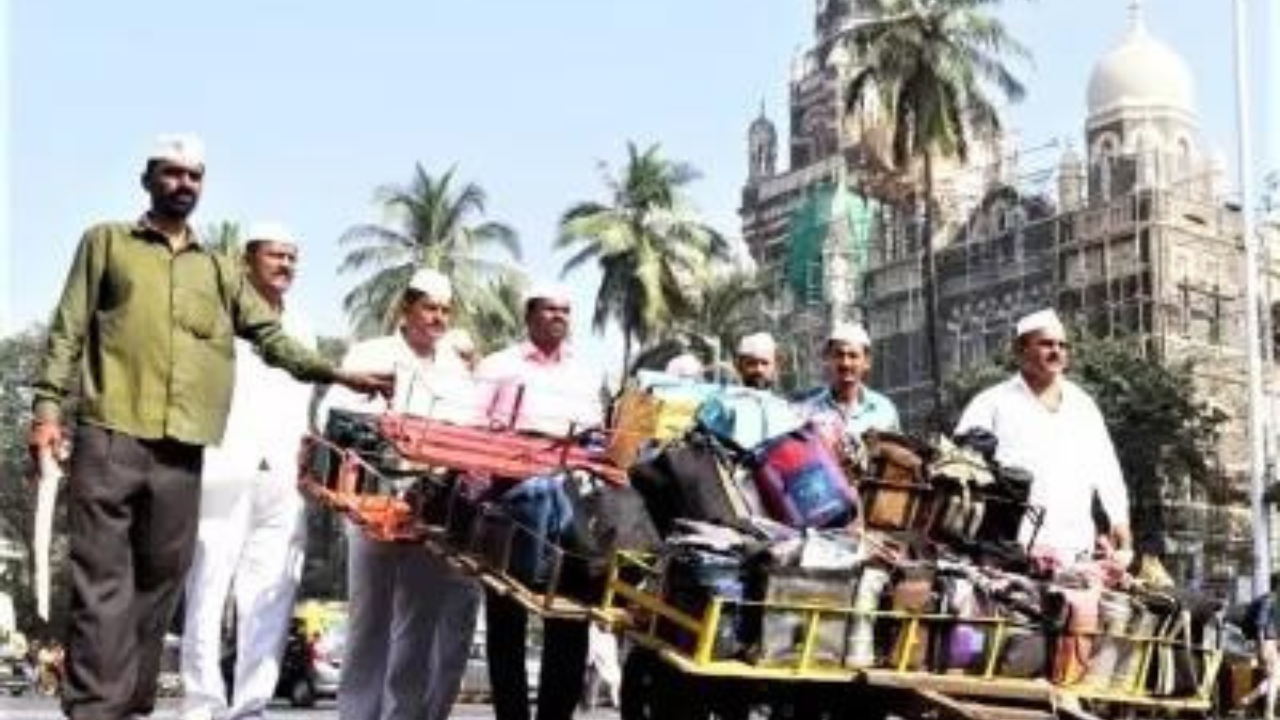

MUMBAI: The heartwarming story of the world famous ‘dabbawalas‘ from Mumbai has become part of class 9 English textbook in Kerala from this year, officials said on Monday.
The Kerala State Council for Educational Research and Training (SCERT) has included an article written by a travel writing couple Hugh and Colleen Gantzerlocated in Mussoorie (Uttarakhand), in the school curriculum.
The chapter on ‘dabbawalas’ (pp. 71-75) describes the origin of the first ‘dabba’ (tiffin box) that was brought from Dadar (then considered a suburb) to the fort area of South Mumbai, about 12 km away.
“That was sometime in 1890 – or 134 years ago – and the first customer was a Parsi woman who Mahadeo Havaji Bachche to deliver a piping hot lunchbox to her husband at his office in the city centre,” Raghunath Medge, the former president of Nutan Mumbai Tiffin Box Suppliers Charitable Trust (NMTBSCT), told IANS.
The NMTBSCT is the umbrella organization under which the Mumbai Tiffin Box Suppliers Association (MTBSA) operates.
From those humble beginnings the ‘dabbawalas’ grew and flourished, and at the last count before the Covid-19 pandemicthe busy tribe was 5,000 strong and transported around 2,00,000 ‘dabbas’ daily. They are admired and respected in Mumbai and all over the world for their unique, efficient and punctual service which is equivalent to a Six Sigma Rating.
“From the crowded, unkempt railway stations on Mumbai’s suburban rail network, the Dabbawalas soon travelled to international business schools, international universities, featured in films, documentaries and books, and were visited by royals like King Charles III, queens, presidents, prime ministers and other celebrities,” said Ritesh S. Andre, spokesperson of NMTBSCT.
However, during the Covid pandemic, the trade has suffered greatly, with the number of workers reduced to around 2,000 and deliveries averaging around 100,000 per day. Now only the needy are being employed to do the heavy lifting, Medge said.
“Even the markets have changed drastically. What was linear from north Mumbai to south Mumbai is now from north Mumbai to new Central Business Districts (CBDs) that have mushroomed in the Mumbai Central region, including Worli, Dadar, Bandra Kurla Complex, MIDC, Marol, Ghatkopar, Goregaon, Malad, etc., besides supplying schools and colleges, making it a complex affair,” Medge said.
Besides the SCERT textbooks from Kerala, the ‘dabbawalas’ have been the subject of doctoral studies in India, research at international level and have been the subject of films and series dedicated to them, apart from a comic book series.
The Kerala State Council for Educational Research and Training (SCERT) has included an article written by a travel writing couple Hugh and Colleen Gantzerlocated in Mussoorie (Uttarakhand), in the school curriculum.
The chapter on ‘dabbawalas’ (pp. 71-75) describes the origin of the first ‘dabba’ (tiffin box) that was brought from Dadar (then considered a suburb) to the fort area of South Mumbai, about 12 km away.
“That was sometime in 1890 – or 134 years ago – and the first customer was a Parsi woman who Mahadeo Havaji Bachche to deliver a piping hot lunchbox to her husband at his office in the city centre,” Raghunath Medge, the former president of Nutan Mumbai Tiffin Box Suppliers Charitable Trust (NMTBSCT), told IANS.
The NMTBSCT is the umbrella organization under which the Mumbai Tiffin Box Suppliers Association (MTBSA) operates.
From those humble beginnings the ‘dabbawalas’ grew and flourished, and at the last count before the Covid-19 pandemicthe busy tribe was 5,000 strong and transported around 2,00,000 ‘dabbas’ daily. They are admired and respected in Mumbai and all over the world for their unique, efficient and punctual service which is equivalent to a Six Sigma Rating.
“From the crowded, unkempt railway stations on Mumbai’s suburban rail network, the Dabbawalas soon travelled to international business schools, international universities, featured in films, documentaries and books, and were visited by royals like King Charles III, queens, presidents, prime ministers and other celebrities,” said Ritesh S. Andre, spokesperson of NMTBSCT.
However, during the Covid pandemic, the trade has suffered greatly, with the number of workers reduced to around 2,000 and deliveries averaging around 100,000 per day. Now only the needy are being employed to do the heavy lifting, Medge said.
“Even the markets have changed drastically. What was linear from north Mumbai to south Mumbai is now from north Mumbai to new Central Business Districts (CBDs) that have mushroomed in the Mumbai Central region, including Worli, Dadar, Bandra Kurla Complex, MIDC, Marol, Ghatkopar, Goregaon, Malad, etc., besides supplying schools and colleges, making it a complex affair,” Medge said.
Besides the SCERT textbooks from Kerala, the ‘dabbawalas’ have been the subject of doctoral studies in India, research at international level and have been the subject of films and series dedicated to them, apart from a comic book series.

